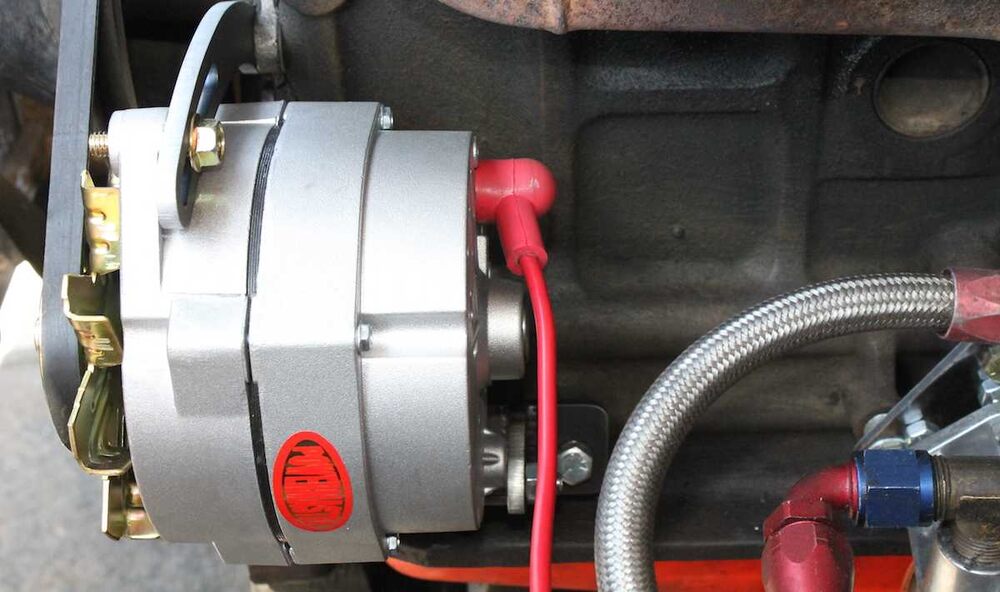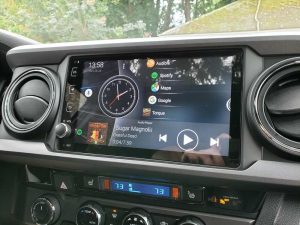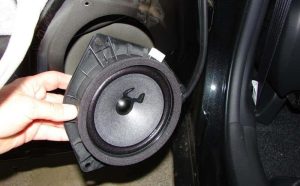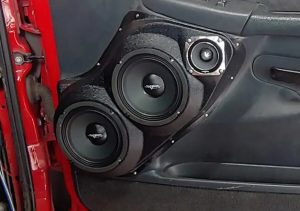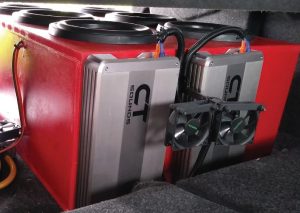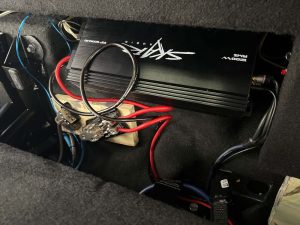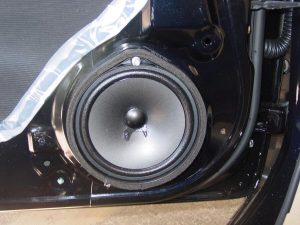In the world of car enthusiasts, upgrading the audio system is a common pursuit. The thrill of cruising to your favorite tunes with pristine sound quality is unparalleled. However, this pursuit can place additional demands on your vehicle’s electrical system, specifically the alternator. In this article, we’ll address two important questions: “Do I need a new alternator for car audio?” “What kind of alternator do I need for car audio?” and “Choosing the right alternator size.” We’ll guide you by the key considerations to ensure your car’s electrical system can handle the power-hungry demands of your upgraded audio setup.
Contents
Do I Need an Alternator for Car Audio?
Car audio enthusiasts often wonder if their stock alternator is sufficient for their upgraded audio system. The answer lies in the power requirements of your new audio setup. Modern car audio systems come with various components, including amplifiers, subwoofers, and high-performance speakers. These components demand more power than what the factory alternator might provide.
If you’ve noticed dimming headlights, voltage drops, or even a strain on your car’s engine when the audio system is in full swing, it’s a clear indication that your stock alternator is struggling to keep up. Additionally, if you plan to install a powerful sound system, it’s advisable to consider a higher output alternator to ensure stable power distribution throughout the vehicle.
What Kind of Alternator Do I Need for Car Audio?
Choosing the right alternator size for your car audio system is crucial to prevent electrical system strain and maintain optimal performance. Here are some key factors to consider:
Power Requirements: Calculate the power consumption of your audio system by adding up the wattage of all your components. An alternator that can handle at least 20-30% more power than your total audio system wattage is recommended. This extra capacity ensures that other vehicle systems are not compromised.
Amplifier Efficiency: Amplifiers are the backbone of your car audio system. They convert electrical energy into sound, but they can also generate heat in the process. Opt for an alternator that provides ample power to your amplifiers while keeping them efficient and preventing overheating.
Wiring and Battery: A high-output alternator is only as effective as the wiring and battery it’s connected to. Ensure your vehicle’s wiring and battery can handle the increased power without causing voltage drops. Upgrading to thicker cables and a higher capacity battery might be necessary.
Future Expansion: If you’re planning to add more audio components in the future, consider that when choosing your alternator. A slightly larger alternator now can save you from the hassle of upgrading again later.
Aftermarket Alternator: If your power requirements exceed what your vehicle’s stock alternator can provide, you might need to invest in an aftermarket alternator. These alternators are designed to offer higher output specifically for power-hungry applications like car audio systems.
Calculating the Size of an Alternator for Your Car Audio System
Upgrading your car’s audio system is an exciting venture, but it requires careful consideration to ensure your vehicle’s electrical system can handle the increased power demands. One of the most critical aspects is selecting the right alternator size. Here’s a step-by-step guide on how to calculate the size of an alternator for your car audio system:
1. Determine Total System Wattage:
Start by adding up the wattage ratings of all the components in your car audio system. This includes amplifiers, subwoofers, speakers, and any other power-hungry devices. You can find the wattage information in the product specifications or user manuals. For instance, if you have two amplifiers rated at 500 watts each and a subwoofer rated at 300 watts, your total system wattage would be 1300 watts.
2. Consider Overhead:
To ensure a stable power supply and prevent overworking the alternator, it’s advisable to factor in a safety margin. Add around 20-30% to the total system wattage calculated in the previous step. This accounts for inefficiencies, voltage fluctuations, and future system upgrades.
3. Convert Watts to Amperes:
Alternator output is typically measured in amperes, so you need to convert your total wattage to amperes using the formula: Amperes (A) = Watts (W) / Voltage (V). Standard automotive voltage is around 12 volts. For example, if your total system wattage is 1300 watts, the amperage would be approximately 108.33 A (1300 W / 12 V).
4. Choose an Alternator:
Based on the amperage calculated, you can now select an alternator that can handle the load. Alternators are available in various amperage ratings, ranging from 70A to over 200A. It’s essential to choose an alternator with an output capacity higher than the calculated amperage. Opting for an alternator with slightly more capacity provides a buffer for dynamic power demands.
5. Consider Your Vehicle’s Wiring and Battery:
A high-output alternator is only effective if the wiring and battery can accommodate the increased power flow. Upgrading to thicker gauge wiring and a higher capacity battery might be necessary to prevent voltage drops and ensure the system operates efficiently.
6. Consult Experts and Resources:
If you’re unsure about the technical aspects of calculating alternator size, consider consulting with car audio professionals or utilizing online alternator size calculators. These tools take into account various factors and provide you with a recommended alternator size based on your system’s specifications.
For additional tips on maintaining your car audio system, you can check out this article on how to reset your car radio after a battery change.
Conclusion
Upgrading your car’s audio system can significantly enhance your driving experience, but it’s essential to ensure your vehicle’s electrical system can handle the increased demands. Assess the power requirements of your audio components, consider efficiency, wiring, and battery capacity, and if needed, opt for a higher output alternator. By making these informed choices, you can enjoy your favorite tunes without compromising your vehicle’s electrical integrity.
